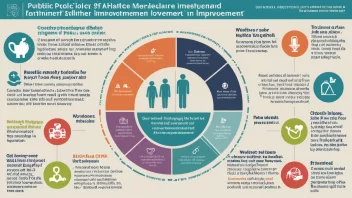The healthcare industry is experiencing a profound transformation, driven largely by the advancements in scientific research. As researchers uncover new knowledge and technologies, the implications for healthcare delivery, treatment options, and patient outcomes are significant. This article delves into how scientific research is revolutionizing healthcare, with a focus on cutting-edge innovations in treatment methodologies, digital health, and public health strategies.
One of the most impactful areas of research in healthcare is the development of innovative treatment methodologies. Breakthroughs in immunotherapy and gene editing, such as CRISPR-Cas9, are changing the face of medicine. These approaches enable targeted treatments that harness the body’s own defenses to fight diseases like cancer and genetic disorders. Research studies have demonstrated the potential efficacy of these therapies, highlighting how they can lead to higher survival rates and better quality of life for patients. The ability to manipulate genetic material opens new avenues for curing previously untreatable conditions and marks a significant leap forward in medical science.
Digital health has emerged as another vital aspect of healthcare transformation, largely propelled by scientific research. The proliferation of wearable technologies and health apps allows for continuous monitoring of health metrics, leading to more informed patient engagement. Research has shown that these technologies can enhance disease management and encourage healthier lifestyles. For example, continuous glucose monitors provide real-time data for diabetes patients, enabling timely interventions. Furthermore, the integration of electronic health records (EHR) streamlines data sharing among healthcare providers, ensuring comprehensive and coordinated care.
Public health strategies are also evolving thanks to scientific research. The importance of epidemiological studies in understanding disease spread and prevention has never been clearer, especially in light of global health challenges like pandemics. Research findings inform public health policies, vaccination campaigns, and community health initiatives. For instance, studies on vaccine efficacy and safety have been crucial in building public trust and encouraging widespread immunization, ultimately saving lives and reducing healthcare costs.
Moreover, scientific research is increasingly addressing health disparities by exploring social determinants of health. By understanding how factors such as income, education, and environment impact health outcomes, researchers are better equipped to design interventions that target vulnerable populations. Initiatives aimed at reducing these disparities not only improve individual health but also contribute to overall community well-being.
In summary, scientific research is at the forefront of transforming healthcare. With innovations in treatment methodologies, the rise of digital health, and the emphasis on public health strategies, the future of healthcare is becoming more effective and equitable. As researchers continue to explore new frontiers, the potential for improved health outcomes and enhanced patient experiences becomes ever more promising.
Innovations in Healthcare: A Research Perspective
Explore how scientific research is revolutionizing healthcare through innovative treatment methodologies, digital health advancements, and evolving public health strategies.






